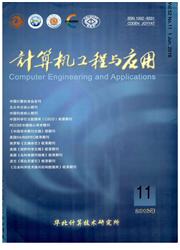

 中文摘要:
中文摘要:
研究了[r→(t s )]-=[(r→t) (r→s)],[r→(t s)]=[(r→t) (r→s)],[(p q)→r]=[(p→r) (q→r)],[(p q )→r] = [(p→r) (q→r)]4个分配性方程,它们在模糊集理论中的形式分别是I(r, T1(t, s ) )=T2(I(r, t), I( r ,s ) ) I( r ,S1( t,s ) )=S2( I(r ,t ) ,I(r,s ) ),I( T1(p,q ),r )=S1 (I(p ,r )I( q ,r ) ),I( S1(p ,q ),r )=T1( I(p,r ) ,I( q ,r ) ),p ,q ,r,s ,t ∈ [0,1],T1、T2为任意三角模,S1、S2为任意三角余模,给出了,为QL-、D-蕴涵时满足分配性方程的充要条件。
 英文摘要:
英文摘要:
Four distributivity equations[r→(t s )]-=[(r→t) (r→s)],[r→(t s)]=[(r→t) (r→s)],[(p q)→r]=[(p→r) (q→r)],[(p q )→r] = [(p→r) (q→r)] are discussed.The generalized versions of these distributivity equations are I(r, T1(t, s ) )=T2(I(r, t), I( r ,s ) ) I( r ,S1( t,s ) )=S2( I(r ,t ) ,I(r,s ) ),I( T1(p,q ),r )=S1 (I(p ,r )I( q ,r ) ),I( S1(p ,q ),r )=T1( I(p,r ) ,I( q ,r ) ),p ,q ,r,s ,t ∈ [0,1],where T1,T2 are a t-norm,St,S2 are a t-conorm.Then this paper proposes the sufficient and necessary conditions for QL-,D-implications to satisfy these distributivity equations.
 同期刊论文项目
同期刊论文项目
 同项目期刊论文
同项目期刊论文
 期刊信息
期刊信息
